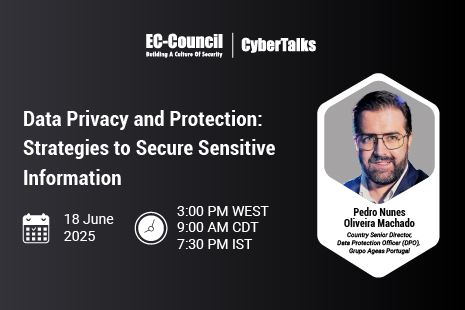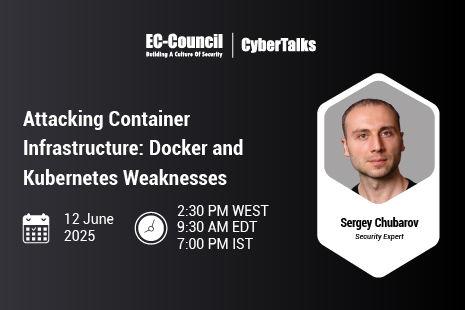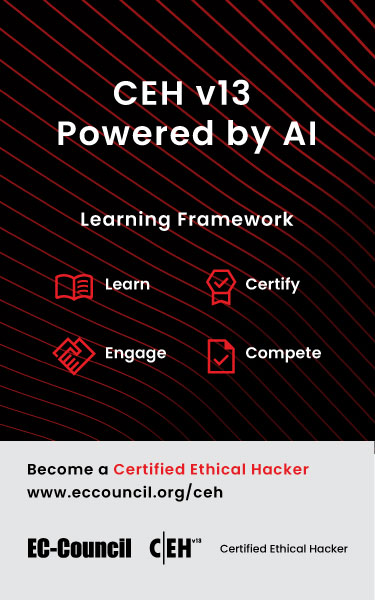As technology advances, so does the need for more robust cybersecurity. Organizations of all sizes are vulnerable to attacks, and to combat these threats, they require employees with the right skill set.
If you’re interested in advancing your career as a cybersecurity professional, there’s no better way to start than with EC-Council’s Certified Ethical Hacker (C|EH) course. This article will discuss the C|EH certification requirements, the skills that ethical hackers need to possess, and what employers are looking for in potential employees.
C|EH Certification Requirements
EC-Council’s C|EH is one of the most sought-after cybersecurity certifications on the market. The course is designed to be accessible to those without previous ethical hacking experience. To be eligible to take the C|EH certification exam, applicants must have at least 2 years of experience working in information security or participate in an approved EC-Council official training.
By the time students clear the final exam of CEH, they working knowledge in below core nine different domains of cybersecurity
- Information security and ethical hacking
- Reconnaissance techniques
- System hacking phases and attack techniques
- Network and perimeter hacking
- Web application hacking
- Wireless network hacking
- Mobile, Internet of Things (IoT), and operational technology (OT) hacking
- Cloud computing
- Cryptography
Ethical Hacking Skills Taught in the C|EH Course
The C|EH is a vendor-neutral certification that teaches and assesses skills in penetration testing, vulnerability assessment, ethical hacking, and red teaming. The course is divided into 20 different modules to teach students the full range of ethical hacking skills. Some of these modules include:
- Footprinting and reconnaissance
- Scanning networks
- Vulnerability analysis
- System hacking
- Malware threats
- Social engineering
- Session hijacking
- Evading intrusion detection systems, firewalls, and honeypots
- Hacking web servers
- Hacking web applications
- Hacking wireless networks
- Hacking mobile applications
- IoT hacking
- Cloud computing
- Cryptography
- Cloud hacking
- AI-driven cybersecurity skills
- Hacking AI attack systems
The C|EH program is one of the best ethical hacking courses that equips students with the job-relevant skills that ethical hackers need today. The course material is tailored to modern case studies and current events and incorporates cutting-edge exploit technologies, malware analysis, and cloud and IoT hacking techniques.
The C|EH course also gives students access to EC-Council’s live cyber range, where real-life hacking tasks replace unrealistic simulations to create a fully realistic, hands-on experience. After completing the certified ethical hacker course modules, students must pass a 4-hour exam consisting of 125 questions that test their knowledge of the ethical hacking skills they have learned through the course. And to attain CEH Master certification, students may attempt a 6 hour, 100% practical exam, comprising of 20 real world scenarios.
What Employers Are Looking For in Ethical Hackers
Businesses that employ ethical hackers are looking for cybersecurity professionals who can act as “bodyguards” to protect an organization’s digital infrastructure against cyberthreats. The specific desired skill set for an ethical hacker will vary from employer to employer depending on their IT environment and the specific cybersecurity threats they face on a daily basis.
A certified ethical hacker’s position within a company will also determine what skills they must have to fulfill their responsibilities. Some of the most common positions that ethical hackers occupy include:
- Penetration tester
- Vulnerability assessor
- Information security analyst
- Security consultant
- Security engineer
- Security architect
- Information security manager
To ensure success in any of the above positions, C|EH-certified professionals need to understand operating system security, cryptography methods, forensics procedures, wireless network hacking methods, web application vulnerabilities, and current malware threats.
Certified Ethical Hacker course is mapped to below 49 job roles.
- Mid-Level Information Security Auditor
- Cybersecurity Auditor
- Security Administrator
- IT Security Administrator
- Information Security Analyst 1
- Infosec Security Administrator
- Cybersecurity Analyst (Level 1, Level 2, & Level 3)
- Network Security Engineer
- SOC Security Analyst
- Network Engineer
- Senior Security Consultant
- Information Security Manager
- Senior SOC Analyst
- Solution Architect
- Cybersecurity Consultant
- Cyber Defense Analyst
- Vulnerability Assessment Analyst
- Warning Analyst
- All-Source Analyst
- Cyber Defense Incident Responder
- Research & Development Specialist
- Senior Cloud Security Analyst
- Third-Party Risk Management
- Threat Hunting Analyst
- Penetration Tester
- Cyber Delivery Manager
- Application Security Risk
- Threat Modelling Specialist
- Web Application Penetration Tester
- SAP Vulnerability Management- Solution Delivery Advisor
- Ethical Hacker
- SIEM Threat Responder
- Product Security Engineer / Manager
- Endpoint Security Engineer
- Cybersecurity Instructor
- Red Team Specialist
- Data Protection & Privacy Officer
- SOAR Engineer
- AI Security Engineer
- Sr. IAM Engineer
- PCI Security Advisor
- Exploitation Analyst (EA)
- Zero Trust Solutions Engineer / Analyst
- Cryptographic Engineer
- AI/ML Security Engineer
- Machine Learning Security Specialist
- AI Penetration Tester
- AI/ ML Security Consultant
- Crypto Security Consultant
The Certified Ethical Hacker Application Process
The C|EH application process is extremely straightforward. Applicants must first submit an official C|EH application form that includes their full name, company name (if applicable), position title, project name (if applicable), contact information, employment history over the previous 10 years, and training history over the last 5 years.
After submitting their C|EH application form along with all the required documentation to EC-Council, applicants will receive a registration ID if their C|EH application process was successful and their account is active. They will then be free to schedule their C|EH exam when ready using the available booking links on the EC-Council website.
To learn more about how to start training to become a certified ethical hacker, get in touch with EC-Council today!












